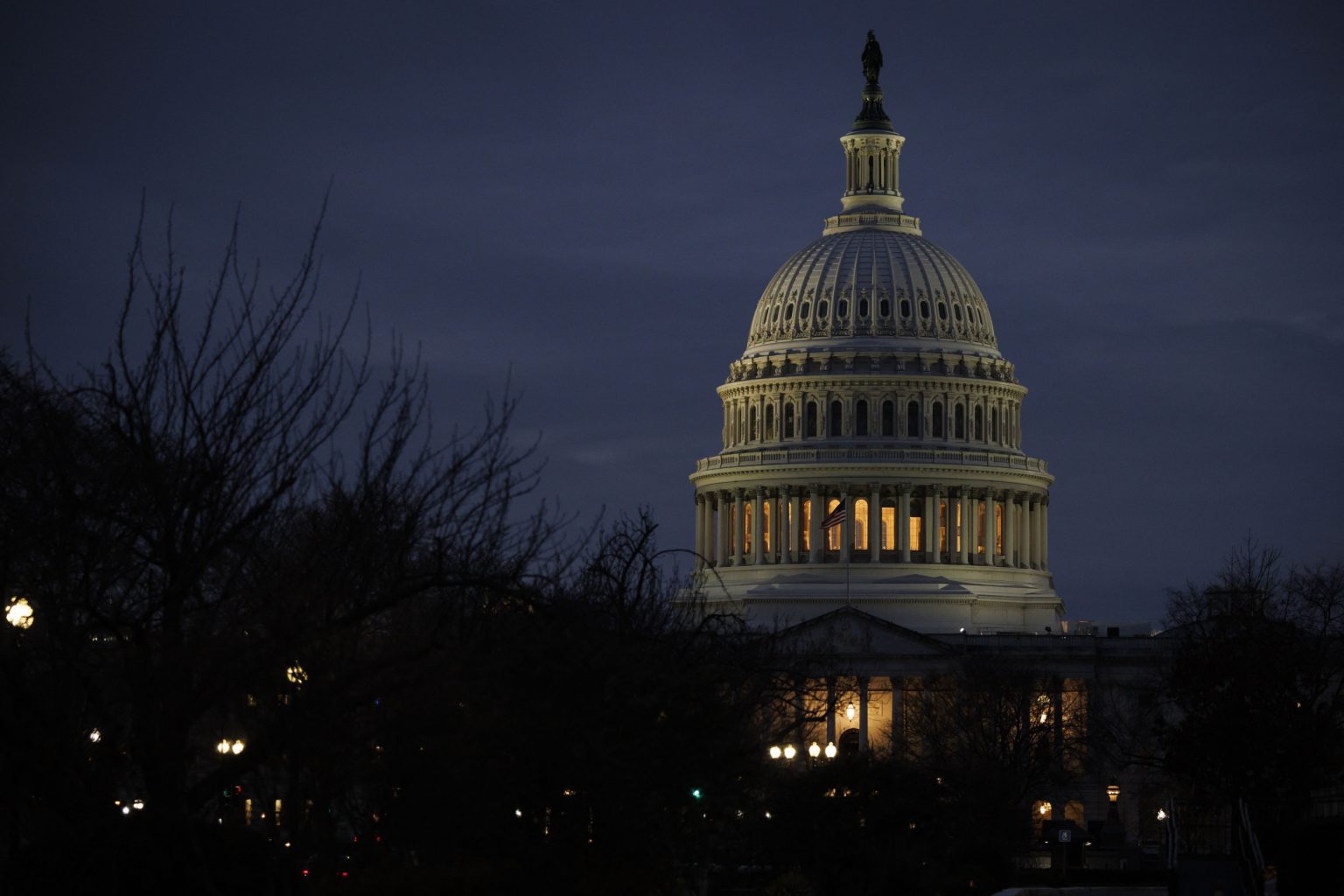The looming threat of a government shutdown grips Washington as the House races against the clock to pass a spending bill before the midnight deadline on Friday. Failure to do so would halt funding for numerous federal agencies, potentially leaving millions of federal employees without paychecks during the holiday season. This precarious situation underscores the ongoing difficulty Congress faces in fulfilling its basic duty of funding the government. The repeated occurrence of these down-to-the-wire votes reflects deeper political divisions and the increasing influence of external actors on the legislative process.
This particular spending bill has been marred by unusual interference, with reports suggesting input from figures like Elon Musk and former President Donald Trump. Their involvement has reportedly disrupted bipartisan efforts that had initially produced a spending bill earlier this week. A subsequent bill, favored by Trump and House Republicans, failed to garner sufficient support on Thursday, further escalating the tension and uncertainty surrounding the funding process. The involvement of non-governmental figures has injected unforeseen complexity into what is typically a complex but internally managed process, adding another layer of difficulty to an already fraught situation.
As lawmakers grapple with a third proposed bill just hours before the deadline, approximately three million federal employees face the unsettling prospect of a delayed or missed paycheck. This uncertainty casts a shadow over the holiday season, creating financial anxiety for families across the country who rely on the timely disbursement of federal salaries. The potential shutdown evokes memories of the 2018-19 shutdown, the longest in U.S. history, spanning 35 days and impacting a wide range of government services. While that shutdown saw some agencies maintain operations due to pre-approved funding, the current scenario carries similar risks of disruption and hardship.
While a shutdown seemed unlikely as lawmakers worked through Friday afternoon, the process remains fraught with complexity. Representatives have been tasked with reviewing a 1,500-page document outlining the proposed spending plan, adding to the pressure of the rapidly approaching deadline. This legislative logjam highlights the recurring challenge of funding gaps in the modern budget process, with over 20 such instances occurring since 1976. The mechanics of a shutdown involve a cessation of funding, forcing each federal agency to develop its own contingency plan for managing the resulting operational disruptions. These plans often draw on guidance from prior shutdowns, coordinated by the Office of Management and Budget (OMB), creating a patchwork approach to essential government services.
The potential ramifications of a shutdown extend across various federal agencies. In anticipation of a possible funding lapse, Representative Jennifer Wexton of Virginia highlighted the potential impacts on the Social Security Administration, noting that services like benefit verification and overpayment processing could be halted, while core functions like card issuance and application appointments would likely continue. The distinction between “excepted” and “non-excepted” employees determines which federal workers will continue working, albeit without immediate pay, and which will be placed on unpaid furlough. Crucially, while furloughed employees typically receive back pay once the shutdown ends, federal contractors lack this guarantee, adding another layer of financial precarity to the situation. The scope of the shutdown, whether total or partial, further influences the ultimate impact. A partial shutdown occurs when Congress approves some but not all of the appropriation bills within the larger spending package, leading to a more targeted disruption of services.
Amidst the ongoing negotiations, House Speaker Mike Johnson expressed optimism, stating his expectation that a shutdown would be avoided and that federal employees would receive their paychecks. He emphasized the importance of meeting obligations to farmers requiring aid, disaster victims, and the military, while ensuring the continuity of essential services. This sentiment was echoed by Republican Representative Tim Burchett, who expressed confidence in the passage of the bill, citing support from House Minority Leader Hakeem Jeffries. The House faces the imperative of passing the spending bill before midnight on Friday, requiring a two-thirds majority vote for it to take effect. The current proposal aims to extend funding into March, providing a temporary reprieve while lawmakers seek a more permanent resolution to the underlying budgetary disagreements between Democrats and Republicans. This short-term solution underscores the ongoing nature of the funding challenges and the need for a more sustainable approach to government appropriations.

